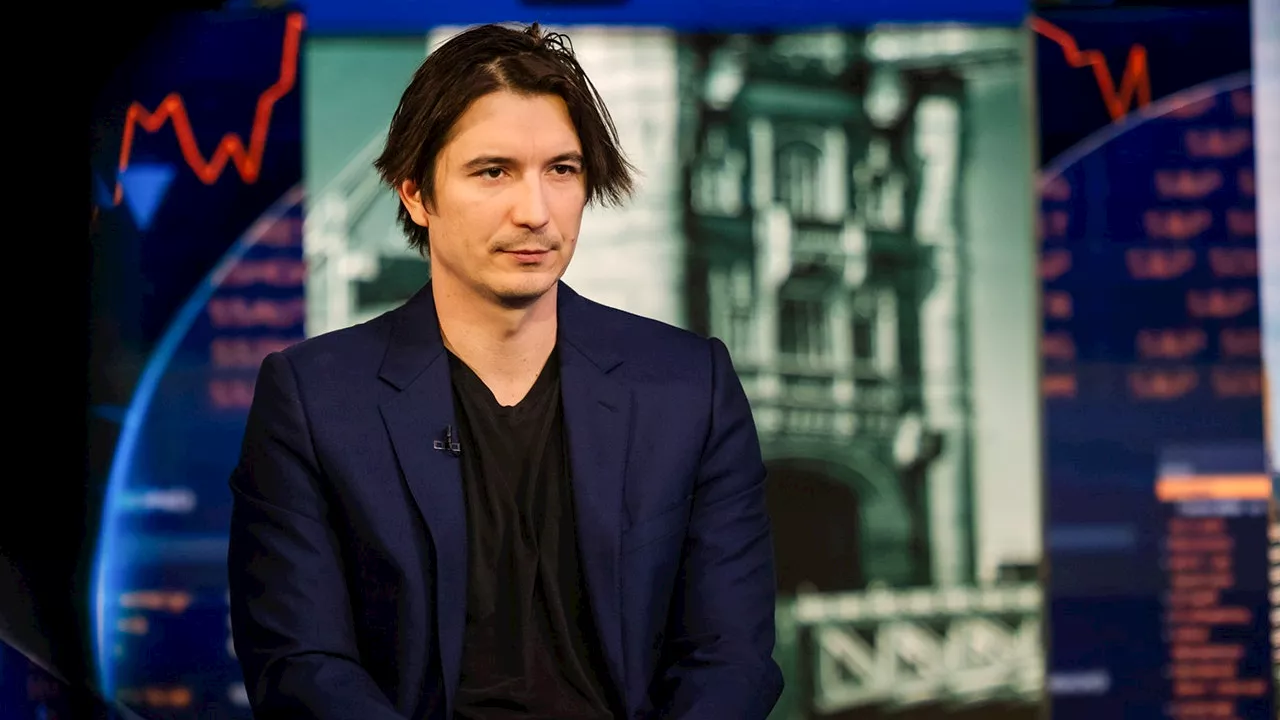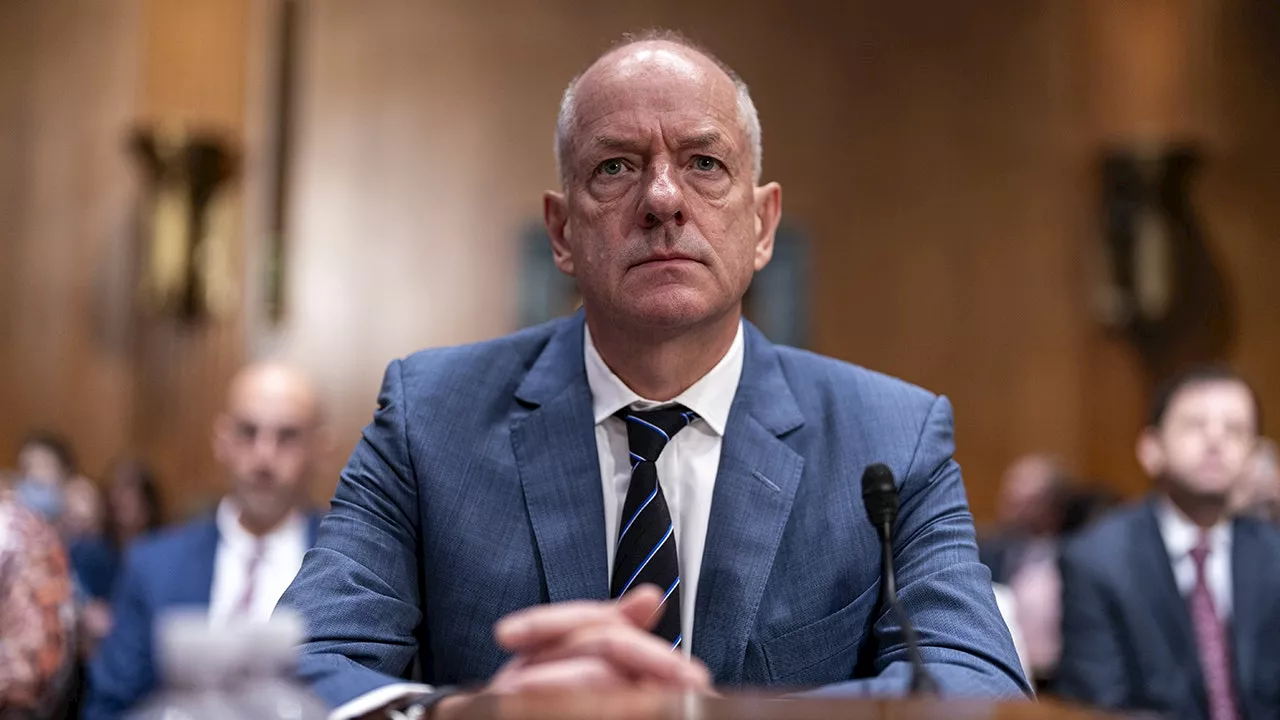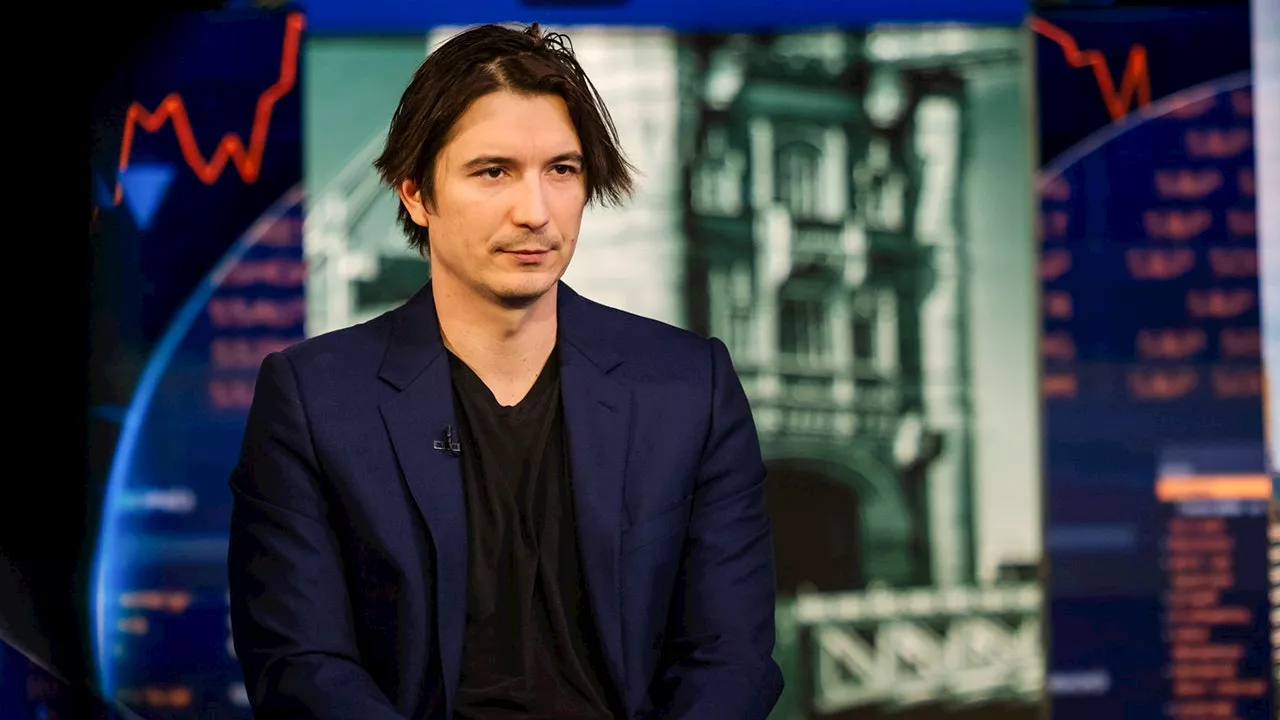Robinhood CEO Vlad Tenev is calling for increased access to private markets, arguing that the current system limits opportunities for retail investors. He believes that the next frontier in investing will be making sure that companies like SpaceX and OpenAI are accessible to a wider range of investors. Tenev sees this as a chance to fix a 'big problem' in the American trading market where the IPO process is cumbersome and only allows the biggest companies to list.
Expanding on a recent opinion piece regarding 'the next frontier' in cryptocurrency investing, Robinhood CEO Vlad Tenev is highlighting 'a big problem' that needs fixing in America's trading market.
'I think there's a big problem, which is that if you're a retail investor right now, and you want to invest in – it is very, very clear that they do, judging by the market activity yesterday and overnight on Sunday – you don't have too many options,' Tenev said Tuesday in an exclusive interview on 'The Claman Countdown.' 'The IPO process has gotten cumbersome. Only the biggest companies can do it, and that limits opportunities and upside, too, to retail investors,' he continued. 'We now have an administration that's crypto-friendly and retail-friendly, and we see an opportunity to fix this major problem.' Robinhood has broken down crypto barriers by democratizing trading on its easy-to-use platform and free, no-commission trades. Now, Tenev wants to lead in the ability to use crypto and invest in companies before they go public.In a Washington Post opinion piece also published Tuesday, Tenev wrote that this investing revolution is coming, but the U.S. isn’t ready for it. 'You have companies like SpaceX worth hundreds of billions , companies like OpenAI and Anthropic that are off limits to investors,' the CEO pointed out to FOX Business’ Liz Claman. 'And the right solution is to open up access to these, sort of, previously accredited assets. And I think we can do that in a way that makes sure that customers know what they're putting their money into and self-certify that they understand the risks.' When asked whether the rise of 'meme' coins and tokens, like $TRUMP and $MELANIA, more recently, degrade the technical and fundamental value behind the currencies, Tenev responded by saying that it moves larger conversations and gives 'the power' to anyone who wants to access a global market. 'The fact that it's so easy and that someone with a computer can set it up and do it in a relatively short amount of time shows you that the technology is valuable. And we just need the regulatory clarity to connect this crypto technology to real world productive assets that are currently regulated as securities,' he explained.After the groundbreaking Chinese AI app DeepSeek fueled a U.S. tech market sell-off earlier this week, Tenev claimed Sunday marked the second-biggest overnight trading session in the platform’s history. GET FOX BUSINESS ON THE GO BY CLICKING HERE Robinhood’s customers tend to 'buy the dip,' the CEO noted, and A.I. also represents the 'next frontier' in what investors want to get their hands on. 'I think that just shows you the power of what can happen if private markets are open,' Tenev said. 'They're private companies whose investors are limited to a very, very small circle of insiders that tend to invest in all of these deals. So I think that the next frontier and democratization of retail investing is going to be making sure that these opportunities are open to retail investors.
Finance Technology Robinhood Vlad Tenev Cryptocurrency Investing Private Markets IPO Retail Investors Spacex Openai
United States Latest News, United States Headlines
Similar News:You can also read news stories similar to this one that we have collected from other news sources.
 Robinhood CEO Calls for Democratized Access to Pre-IPO Companies and CryptoRobinhood CEO Vlad Tenev argues that the current investment landscape favors large corporations and excludes retail investors from opportunities in emerging sectors like cryptocurrency and pre-IPO companies. He calls for regulatory changes to open access to these markets and empower everyday investors.
Robinhood CEO Calls for Democratized Access to Pre-IPO Companies and CryptoRobinhood CEO Vlad Tenev argues that the current investment landscape favors large corporations and excludes retail investors from opportunities in emerging sectors like cryptocurrency and pre-IPO companies. He calls for regulatory changes to open access to these markets and empower everyday investors.
Read more »
 Quantum Computing CEO Calls Nvidia CEO 'Dead Wrong' After Market DropFollowing Nvidia CEO Jensen Huang's statement that quantum computers are decades away, D-Wave Quantum CEO Alan Baratz refuted Huang's claims and highlighted his company's current commercial success in the quantum computing field.
Quantum Computing CEO Calls Nvidia CEO 'Dead Wrong' After Market DropFollowing Nvidia CEO Jensen Huang's statement that quantum computers are decades away, D-Wave Quantum CEO Alan Baratz refuted Huang's claims and highlighted his company's current commercial success in the quantum computing field.
Read more »
Alpha Announces CEO Retirement and Appointment of Interim CEOAlpha Corp announces the retirement of its President and CEO, Michael Hopley, effective December 31, 2024. Hopley will remain as a director and Chairman of the Board. Timothy Livesey, a current director, has been appointed as Interim CEO. Livesey brings over 35 years of experience in exploration and development.
Read more »
 UnitedHealth CEO Sees Growth in 2025 Despite CEO's MurderUnitedHealth Group CEO Andrew Witty expresses confidence in the company's future growth despite the tragic murder of the insurance unit's CEO, Brian Thompson. Witty acknowledges the public's reaction to the incident and emphasizes the company's commitment to improving healthcare access and affordability.
UnitedHealth CEO Sees Growth in 2025 Despite CEO's MurderUnitedHealth Group CEO Andrew Witty expresses confidence in the company's future growth despite the tragic murder of the insurance unit's CEO, Brian Thompson. Witty acknowledges the public's reaction to the incident and emphasizes the company's commitment to improving healthcare access and affordability.
Read more »
CEO.CA's 'Inside the Boardroom' Series Features Arizona Metals CEOCEO.CA, a leading investor social network, shares exclusive updates with CEOs of junior mining explorers. Their 'Inside the Boardroom' series features interviews with industry leaders, providing firsthand knowledge and insights into their vision, challenges, and strategies. This week's episode focuses on Duncan Middlemiss, CEO of Arizona Metals (TSX: AMC), discussing key catalysts including an updated resource estimate and a Preliminary Economic Assessment.
Read more »
Cizzle Brands CEO Joins CEO.CA's 'Inside the Boardroom' to Discuss Premium Beverage Market GrowthCEO.CA's popular interview series, 'Inside the Boardroom,' features John Celenza, CEO of Cizzle Brands (CBOE: CZZL), discussing the company's impressive entry into the premium beverage market. Cizzle Brands has generated nearly $5 million in sales in its first four months.
Read more »
